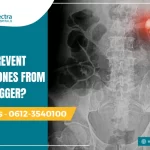Millions of people across the globe experience fatigue which originates from a variety of causes including lifestyle choices as well as serious medical issues.
However, if you’ve been experiencing persistent fatigue that disrupts your daily routine, it should be examined even though occasional tiredness happens to everyone. Recognizing the distinction between routine tiredness and heart-related fatigue remains vital for sustaining good health and well-being.
The heart circulates blood to every part of the body while supplying oxygen and essential nutrients to organs and tissues. But a malfunctioning heart leads to diminished blood circulation and oxygen delivery, which produces fatigue.
It’s important to remember that fatigue that results from heart problems often have certain unique symptoms which are not typical of tiredness due to stress or insufficient sleep.
This blog guides you through identifying heart-related fatigue while exploring common cardiac conditions that cause tiredness and discussing immediate medical warning signs as well as diagnosis and management strategies.
Early detection of these signs can enable prompt treatment, eventually resulting in improved health outcomes.
How to Know if Fatigue is Heart Related?
Persistent tiredness that continues despite rest and negatively impacts your daily functions defines fatigue. True fatigue usually stands apart from everyday tiredness because it remains intense and persistent even after you’ve had enough rest.
This happens mainly due to the heart’s inability to pump blood properly. Heart-related fatigue is due to this reduced supply of oxygen to the tissues throughout the body. However, the most important thing to note here is that this fatigue shows distinct warning signs.
- Routine activities such as climbing stairs or walking short distances may trigger shortness of breath.
- This tiredness might be accompanied by sensations of chest discomfort, pressure, or pain. In fact, for some people, fatigue can present itself with symptoms such as irregular heartbeats and rapid heart rate.
- Swelling in legs, ankles or feet as well as persistent cough and sensations of lightheadedness or dizziness may suggest cardiac-related fatigue.
- A noticeable drop in exercise tolerance and increased need for breaks during activities that used to be easy could also get obvious.
NOTE: In spite of its apparent connection to heart problems, fatigue can also result from various non-cardiac conditions as well including lack of sleep, ongoing stress, depressive disorders, anemia, thyroid abnormalities, diabetes mellitus, and medication side effects.
Thus, it is critical to rule out other conditions before jumping to conclusions. Consult a heart specialist in Patna for proper evaluation and diagnosis if your fatigue continues even after addressing these factors.
Also seek the diagnosis from a healthcare professional if you notice any of the above-mentioned heart-related symptoms alongside fatigue.
Common Heart Conditions Linked to Fatigue
The heart’s impaired blood pumping ability due to the following heart conditions can lead to significant fatigue throughout the body.
1. Coronary Artery Disease
Plaque buildup leads to the narrowing or blocking of arteries that supply blood to the heart muscle, causing coronary artery disease.
This causes the heart to receive reduced blood flow which forces it to work harder with less efficiency. This is why you might feel fatigue and breathing difficulties during physical exertion.
Heart failure develops when the heart fails to pump sufficient blood to satisfy the body’s requirements.
Moreover, fluid accumulation throughout the body including the lungs leads to continuous fatigue and breathing difficulties with accompanying weakness. People suffering from heart failure find even basic everyday tasks extremely tiring.
2. Arrhythmia
Arrhythmias represent irregular heart rhythms which may cause either rapid or slow beats, or it can also display erratic patterns.
Irregular heartbeats lead to less efficient blood pumping which results in fatigue. This fatigue can also be accompanied by dizziness and weakness.
Also important is the fact that certain arrhythmias force the heart to function harder than its normal capacity, which results in exhaustion.
3. Heart Valve Problems
When heart valves develop issues like stenosis or regurgitation, the heart has to exert more effort to sustain proper blood circulation. The additional workload on the heart produces substantial fatigue and diminished exercise ability over time.
All the conditions described above affect regular blood flow which leads to organs and muscles lacking oxygen and nutrients supply. This ends up resulting in constant fatigue and weakness.
When to Seek Medical Attention?
Medical evaluation of serious fatigue symptoms can save lives. Get medical help right away if you feel fatigued while also having chest pain, severe difficulty breathing, a fast or irregular heartbeat, fainting, or sudden weakness.
You should book yourself a doctor’s appointment when fatigue continues beyond several weeks even after getting enough rest along with maintaining healthy nutrition and managing stress effectively.
Also, monitor your body if you find yourself becoming breathless during activities that were once easy for you.
Additional warning signs are waking up feeling tired even after sleeping well along with needing daytime naps frequently and feeling exhausted after little physical activity.
Medical evaluation becomes necessary when fatigue affects your work performance or disrupts your daily responsibilities and relationships.
Medical evaluation is also necessary when fatigue presents alongside symptoms such as a persistent cough, swollen legs, frequent nighttime urination frequency, or sudden weight gain.
Heart issues may be present when these signs appear which require immediate medical evaluation.
Avoid dismissing fatigue when it appears excessive and is disproportionate when compared to your activities or when lifestyle adjustments fail to alleviate it.
Medical intervention at an early stage helps prevent serious health issues while enhancing the quality of your life.
Always listen to your instincts because when your energy levels or heart function seem abnormal, you should seek medical advice to avoid severe health complications later on.
Diagnosis and Tests
Healthcare professionals usually employ multiple techniques to assess whether fatigue stems from heart-related issues. The diagnostic process will usually start with your doctor collecting your comprehensive medical history and performing a physical examination.
Your doctor will also likely ask you about your symptoms, family medical background, all the medications you take, and your personal lifestyle factors.
Based on an early assessment, you may undergo an ECG test. The electrocardiogram (ECG) detects your heart’s electrical patterns to identify irregular heart rhythms and signs of previous heart attacks along with other cardiac conditions.
This straightforward and pain-free test is a convenient diagnostic option because it requires only a few minutes of your time and still delivers crucial data on cardiac performance.
Moreover, blood tests detect heart damage markers including troponin levels and also diagnose conditions such as anemia, thyroid disorders, or diabetes.
Any of these conditions can also be a factor behind fatigue, and that’s why a thorough diagnosis is essential. The tests also provide assessments of kidney function and electrolyte levels which impact heart health.
One other test that you may be prescribed is a stress test. Stress tests assess heart performance during physical exertion, accomplished through exercise or medication that simulates exercise effects.
These medical tests are effective at detecting blocked arteries and additional heart issues which may have been hidden before the tests.
Echocardiogram is also a useful diagnostic test. This test produces heart images using ultrasound waves that illustrate the heart’s size, shape, and pumping ability. The test detects heart valve issues as well as heart failure and structural abnormalities in the heart. You can seek the care of a specialized hospital for the diagnosis of heart issues.
Heart hospitals such as the best heart hospital Patna provide advanced diagnostic testing and comprehensive cardiac care through specialized equipment and medical expertise. This will help you have an accurate diagnosis of heart-related fatigue along with timely treatment strategies.
Managing Heart-Related Fatigue
Successful management of cardiac-related fatigue is only possible when you combine medical treatment strategies along with all the necessary changes in your lifestyle.
1. We strongly advise you to follow your doctor’s medication instructions regardless of whether they consist of heart medications or blood pressure drugs or even treatments for other underlying health issues. All the medications that your doctor prescribes are usually after thorough testing and diagnosis. Thus, it’s essential for you to take the medications as prescribed and advised by the doctor.
2. Coming to the lifestyle modifications, implementing certain changes is also essential to effectively control heart-related fatigue. You should exercise regularly at moderate levels, of course this should be based on your healthcare provider’s recommendations. Also, don’t engage in strenuous physical activities without a prior consultation.
3. It’s also important to start slowly and gradually increase activity levels. Heart function and energy levels can improve through regular walking, swimming, or gentle cycling activities.
4. When it comes to your eating patterns, adopt a heart-friendly diet that includes plenty of vegetables and fruits along with whole grains and lean proteins.
5. Limit your intake of sodium and saturated fats as well as processed foods. Remember a proper diet helps maintain heart health while managing high blood pressure and cholesterol issues.
6. It’s also imperative to try and achieve quality sleep by sticking to a regular sleep routine and setting up your bedroom to promote relaxation. A lack of quality sleep increases fatigue while creating extra strain on the heart.
7. Try to combat chronic stress by practicing relaxation techniques, engaging in meditation sessions, or seeking counseling because ongoing stress leads to heart problems and fatigue.
8. Use a daily journal to observe your symptoms and energy fluctuations in order to detect patterns and triggers.
9. Maintain a steady routine during the day by taking breaks at appropriate times and preventing excessive exertion.
10. Keeping your body hydrated and limiting caffeine and alcohol intake helps maintain heart rhythm and stable energy levels.
Follow all these tips alongside your doctor’s recommendations to effectively manage heart-related fatigue and alleviate serious symptoms.
Spot Fatigue Early, Protect Your Heart
Remember that heart-related fatigue usually manifests differently from regular tiredness. Heart-related fatigue is also usually accompanied by symptoms including shortness of breath, chest discomfort, and irregular heartbeat.
As you can see, there’s a lot of uncertainty surrounding the symptoms and something as benign as persistent fatigue needs to be checked out by a doctor under certain circumstances.
In fact, the ambiguity of symptoms is the reason why early detection of warning signs is important for correct diagnosis and medical treatment.
The most important aspect to remember is that when fatigue presents with additional cardiac symptoms, it can indicate heart issues.
Any fatigue related to heart problems will require a doctor’s assessment because ignoring it or blaming it only on lifestyle choices can be dangerous.
People who suffer from coronary artery disease, heart failure, or arrhythmias can experience intense tiredness that disrupts their daily activities.
So, when fatigue persists or worsens with additional cardiac symptoms, seeking medical care is essential.
The use of up-to-date diagnostic tools together with modern treatments enables effective management of most heart conditions while enhancing heart function and improving patients’ energy levels. Successful management depends on early identification and proper medical treatment of your symptoms.
The best cardiologist in Patna at Big Apollo Spectra offers complete cardiac care along with professional evaluation of fatigue related to heart problems.
Our professional team delivers comprehensive diagnostic assessments and customized treatment solutions to effectively manage heart problem symptoms.
Persistent fatigue should not detract from your quality of life. Proactively protect your heart health and request professional medical advice as necessary to maintain optimal well-being.





